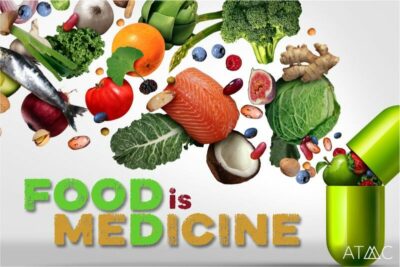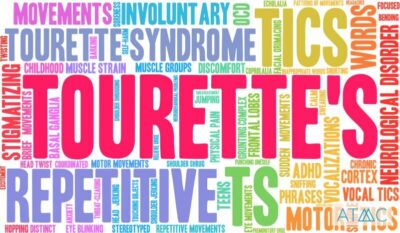1. Wilkinson R, Meythaler J, Guin-Renfroe S, “Haloperidol Medication Can Cause Severe or Fatal Reactions.” Brain Injury Association of America [Internet] 1999. [cited 2021 Dec 1]
2. Boon H, Hazra M, Noh S, Mamo D, Moss K, Taylor A, “Complementary and Alternative Medicine in Psychotic Disorders.” Journal of Alternative Complementary Medicine, published by Google Scholar [Internet] 2010 [cited 2022 June 27]
3. NHS Information Sheet, “Poisoning – Symptoms” NHS 2018 May 31 [cited 2022 June 27]
4. NAMI Patient Information “What are possible long term effects of haloperidol (Haldol)?” provided by CPNP (Creative Commons) 2020 Feb [cited 2022 June 27]
5. Cobos E, et al., ” Irreversible blockade of sigma-1 receptors by haloperidol and its metabolites in guinea pig brain and SH-SY5Y human neuroblastoma cells.” Journal of Neurochemistry PMID 17419803 2007 Aug [cited 2022 June 27]
6. Al-Achi A (2019)Lithium as a Dietary Supplement. J Pharm Pract Pharm Sci 2019(1): 75-76. [cited 2022 June 27]
7. Balhara YP. Diabetes and psychiatric disorders. Indian J Endocrinol Metab. 2011;15(4):274-283. doi:10.4103/2230-8210.85579 [cited 2022 June 27]
8. Aberle D, Wu SE, Oklu R, Erinjeri J, Deipolyi AR. Association Between Allergies and Psychiatric Disorders in Patients Undergoing Invasive Procedures. Psychosomatics. 2017 Sep-Oct;58(5):490-495. doi: 10.1016/j.psym.2017.03.015. Epub 2017 Mar 28. PMID: 28527521 [cited 2022 June 27]
9. Gautam M, Tripathi A, Deshmukh D, Gaur M. Cognitive Behavioral Therapy for Depression. Indian J Psychiatry. 2020;62(Suppl 2):S223-S229. doi:10.4103/psychiatry.IndianJPsychiatry_772_19 [cited 2022 June 27]
10. Robert S. Kern, Shirley M. Glynn, William P. Horan, Stephen R. Marder, Psychosocial Treatments to Promote Functional Recovery in Schizophrenia, Schizophrenia Bulletin,Journal of Psychosis and Related Disorders, Volume 35, Issue 2, March 2009, Pages 347–361 [cited 2022 June 27]
11. Acute Hypoglycemia Presenting as Acute Psychosis Tanveer Padder MD, Aparna Udyawar MD, Nouman Azhar MD, Kamil Jaghab MD From the Department of Psychiatry, Nassau University Medical CenterDecember 2005 [cited 2022 June 27]
12. Patel S, Khan S, M S, Hamid P. The Association Between Cannabis Use and Schizophrenia: Causative or Curative? A Systematic Review. Cureus. 2020;12(7):e9309. Published 2020 Jul 21. doi:10.7759/cureus.9309 [cited 2022 June 27]
13. Hedges DW, Woon FL, Hoopes SP. Caffeine-induced psychosis. CNS Spectr. 2009 Mar;14(3):127-9. doi: 10.1017/s1092852900020101. PMID: 19407709. [cited 2022 June 27]
14. Wang HR, Woo YS, Bahk WM. Caffeine-induced psychiatric manifestations: a review. Int Clin Psychopharmacol. 2015 Jul;30(4):179-82. doi: 10.1097/YIC.0000000000000076. PMID: 25856116. [cited 2022 June 27]
15. Myint AM. Inflammation, neurotoxins and psychiatric disorders. Mod Trends Pharmacopsychiatry. 2013;28:61-74. doi: 10.1159/000343968. Epub 2013 Feb 27. PMID: 25224891. [cited 2022 June 27]
16. Genuis SJ. Toxic causes of mental illness are overlooked. Neurotoxicology. 2008 Nov;29(6):1147-9. doi: 10.1016/j.neuro.2008.06.005. Epub 2008 Jun 24. PMID: 18621076. [cited 2022 June 27]
17. Brown JS Jr. Psychiatric issues in toxic exposures. Psychiatr Clin North Am. 2007 Dec;30(4):837-54. doi: 10.1016/j.psc.2007.07.004. PMID: 17938048. [cited 2022 June 27]
18. Maurus I, Hasan A, Röh A, Takahashi S, Rauchmann B, Keeser D, Malchow B, Schmitt A, Falkai P. Neurobiological effects of aerobic exercise, with a focus on patients with schizophrenia. Eur Arch Psychiatry Clin Neurosci. 2019 Aug;269(5):499-515. doi: 10.1007/s00406-019-01025-w. Epub 2019 May 21. PMID: 31115660. [cited 2022 June 27]
19. Dauwan M, Begemann MJ, Heringa SM, Sommer IE. Exercise Improves Clinical Symptoms, Quality of Life, Global Functioning, and Depression in Schizophrenia: A Systematic Review and Meta-analysis. Schizophr Bull. 2016 May;42(3):588-99. doi: 10.1093/schbul/sbv164. Epub 2015 Nov 7. PMID: 26547223; PMCID: PMC4838091. [cited 2022 June 27]
20. Firth J, Stubbs B, Rosenbaum S, Vancampfort D, Malchow B, Schuch F, Elliott R, Nuechterlein KH, Yung AR. Aerobic Exercise Improves Cognitive Functioning in People With Schizophrenia: A Systematic Review and Meta-Analysis. Schizophr Bull. 2017 May 1;43(3):546-556. doi: 10.1093/schbul/sbw115. PMID: 27521348; PMCID: PMC5464163. [cited 2022 June 27]
21. Ganguly P, Soliman A, Moustafa AA. Holistic Management of Schizophrenia Symptoms Using Pharmacological and Non-pharmacological Treatment. Front Public Health. 2018;6:166. Published 2018 Jun 7. doi:10.3389/fpubh.2018.00166 [cited 2022 June 27]
22. Kang R, Wu Y, Li Z, Jiang J, Gao Q, Yu Y, Gao K, Yan Y, He Y. Effect of Community-Based Social Skills Training and Tai-Chi Exercise on Outcomes in Patients with Chronic Schizophrenia: A Randomized, One-Year Study. Psychopathology. 2016;49(5):345-355. doi: 10.1159/000448195. Epub 2016 Sep 2. PMID: 27584836. [cited 2022 June 27]
23. Yeung A, Chan JSM, Cheung JC, Zou L. Qigong and Tai-Chi for Mood Regulation. Focus (Am Psychiatr Publ). 2018 Jan;16(1):40-47. doi: 10.1176/appi.focus.20170042. Epub 2018 Jan 24. PMID: 31975898; PMCID: PMC6519567. [cited 2022 June 27]
24. Brown HE, Roffman JL. Vitamin supplementation in the treatment of schizophrenia. CNS Drugs. 2014;28(7):611-622. doi:10.1007/s40263-014-0172-4 [cited 2022 June 27]
25. Kent ST, McClure LA, Crosson WL, Arnett DK, Wadley VG, Sathiakumar N. Effect of sunlight exposure on cognitive function among depressed and non-depressed participants: a REGARDS cross-sectional study. Environ Health. 2009;8:34. Published 2009 Jul 28. doi:10.1186/1476-069X-8-34 [cited 2022 June 27]
26. Terman M. Evolving applications of light therapy. Sleep Med Rev. 2007 Dec;11(6):497-507. doi: 10.1016/j.smrv.2007.06.003. Epub 2007 Oct 25. PMID: 17964200. [cited 2022 June 27]
27. Ganci M, Suleyman E, Butt H, Ball M. The role of the brain-gut-microbiota axis in psychology: The importance of considering gut microbiota in the development, perpetuation, and treatment of psychological disorders. Brain Behav. 2019 Nov;9(11):e01408. doi: 10.1002/brb3.1408. Epub 2019 Sep 30. PMID: 31568686; PMCID: PMC6851798. [cited 2022 June 27]
28. Bear TLK, Dalziel JE, Coad J, Roy NC, Butts CA, Gopal PK. The Role of the Gut Microbiota in Dietary Interventions for Depression and Anxiety. Adv Nutr. 2020 Jul 1;11(4):890-907. doi: 10.1093/advances/nmaa016. PMID: 32149335; PMCID: PMC7360462. [cited 2022 June 27]
29. Jackson E, Shoemaker R, Larian N, Cassis L. Adipose Tissue as a Site of Toxin Accumulation [published correction appears in Compr Physiol. 2018 Jun 18;8(3):1251]. Compr Physiol. 2017;7(4):1085-1135. Published 2017 Sep 12. doi:10.1002/cphy.c160038 [cited 2022 June 27]
30. Tchkonia T, Morbeck DE, Von Zglinicki T, et al. Fat tissue, aging, and cellular senescence. Aging Cell. 2010;9(5):667-684. doi:10.1111/j.1474-9726.2010.00608.x [cited 2022 June 27]
31. FDA label Haldol (haloperidol) Revised Feb 2017 [cited 2022 June 27]
32. Rahman S, Marwaha R. Haloperidol. [Updated 2021 Jul 24]. In: StatPearls [Internet]. Treasure Island (FL): StatPearls Publishing; 2021 Jan-. Available from: https://www.ncbi.nlm.nih.gov/books/NBK560892/ [cited 2022 June 27]
33. Fox CA, Mansour A, Watson SJ Jr. The effects of haloperidol on dopamine receptor gene expression. Exp Neurol. 1994 Dec;130(2):288-303. doi: 10.1006/exnr.1994.1207. PMID: 7867758. [cited 2022 June 27]

 As much as we may desire it, a drug may not be the complete answer we were searching for to manage unwanted symptoms. Do not despair, because Alternative to Meds Center has designed practical alternative solutions to help individuals transition to less medication, or in some cases no medication. This requires medical oversight, especially where haloperidol is prescribed both as tablets and in the injectable form, and requires exacting methods to reduce dosage safely.30 Considering the potential hazards and mishaps connected with haloperidol and other antipsychotic medications, many persons find they cannot cope and are looking for a better alternative.
As much as we may desire it, a drug may not be the complete answer we were searching for to manage unwanted symptoms. Do not despair, because Alternative to Meds Center has designed practical alternative solutions to help individuals transition to less medication, or in some cases no medication. This requires medical oversight, especially where haloperidol is prescribed both as tablets and in the injectable form, and requires exacting methods to reduce dosage safely.30 Considering the potential hazards and mishaps connected with haloperidol and other antipsychotic medications, many persons find they cannot cope and are looking for a better alternative. Lithium Orotate (dietary supplement ) 6
Lithium Orotate (dietary supplement ) 6 One such factor is poor diet. A clean, mostly organic diet is deliciously prepared so that nutritional needs are well met. Along with targeted nutritional supplements, these strategies provide the raw materials so that natural neurochemistry has the best chance of being restored. Supporting the gut-brain connection is of utmost importance in recovery from mental health challenges, especially where medications have been involved.2,27,28
One such factor is poor diet. A clean, mostly organic diet is deliciously prepared so that nutritional needs are well met. Along with targeted nutritional supplements, these strategies provide the raw materials so that natural neurochemistry has the best chance of being restored. Supporting the gut-brain connection is of utmost importance in recovery from mental health challenges, especially where medications have been involved.2,27,28 Alternative to Meds Center’s staff includes on-site medical professionals to assist. There are several phases to treatment, such as reducing dependence, preventing withdrawal symptoms, and smoothly transitioning to a more natural mental health approach.
Alternative to Meds Center’s staff includes on-site medical professionals to assist. There are several phases to treatment, such as reducing dependence, preventing withdrawal symptoms, and smoothly transitioning to a more natural mental health approach. Haloperidol is manufactured under various brand names, such as Haldol, Haldol Decanoate®, Peridol®, and Haldol lactate®. In tablet form, dosages range from .05mg up to 20mg. Some versions of haloperidol such as haloperidol lactate are given intravenously or intramuscularly, with dosages that may be significantly higher. This might be given, for instance, to a patient in an aggressive state of mania who is otherwise unmanageable.
Haloperidol is manufactured under various brand names, such as Haldol, Haldol Decanoate®, Peridol®, and Haldol lactate®. In tablet form, dosages range from .05mg up to 20mg. Some versions of haloperidol such as haloperidol lactate are given intravenously or intramuscularly, with dosages that may be significantly higher. This might be given, for instance, to a patient in an aggressive state of mania who is otherwise unmanageable.







